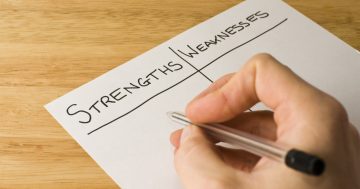Michelle Gibbings* says with a surfeit of often conflicting information about what is coming next, the worker seeking to chart their career needs to be flexible, resilient and adaptable.
 Every day, news sources share stories about predictions and new studies about the future.
Every day, news sources share stories about predictions and new studies about the future.
Some of these stories are positive, others negative; some will arise, and others will not.
It’s often a challenge to know what to pay heed to and what to ignore.
For example, recently Forrester Research shared insights that automation will strip out approximately 1.5 million jobs from the local economy.
Last year, the World Economic Forum’s Future of Jobs 2020 report concluded that technology-driven job creation would outpace job destruction over the next five years.
However, the economic contraction would stall job growth.
Reading such reports can leave you with the impression that everything is changing, yet in many situations change is slow.
As Amazon’s Jeff Bezos notes: “I very frequently get asked the question about what’s going to change in the next 10 years.
“I almost never get the question about what’s not going to change in the next 10 years.
“I submit to you that that second question is actually the more important of the two — you can build a business strategy around the things that are stable in time.”
So, where do you need to focus? It’s a challenging question to answer because when there is a plethora of information, data, reports, and conflicting studies, you can easily get lost in the fog.
As noted economist, Herbert A. Simon concluded: “Information consumes the attention of its recipients. Hence a wealth of information creates a poverty of attention.”
Likewise, predictions are fraught with danger, as there are times when they are based on flawed assumptions.
Of course, this is not to suggest that you shouldn’t look ahead, nor think about what’s around the corner to prepare yourself.
For example, in the context of your career, it’s helpful to understand how your profession and industry might change in the years to come.
However, it’s more important to be flexible, resilient and adaptable, so you are ready for whatever comes next, even when that future is unpredictable.
Embracing a future-readiness approach contains several core elements.
Don’t hold on too tight
Learning to love change is a life skill.
You have a general direction as to where you wish to head, but are not holding on so tight to a fixed outcome that you let other opportunities pass by unnoticed.
Know your value proposition
Everyone brings specific skills and ways of operating to the work they do.
It’s critical to be clear on this value and to be able to articulate how what you do helps other people or organisations.
You also need to keep this value current.
Find your learning edge
Continuing career success requires a constant desire to learn.
Don’t play safe, instead seek new ways of working, experiment with different concepts and explore emerging ideas.
Build deep relationships
Good relationships take time, which means that every investment of energy and all interaction matters.
The world is small and connected.
Ditch the busy-ness
Avoid the trap of being ‘busy’ on things that don’t matter.
Instead, get ‘busy’ on purpose. Look at your day, and drill into how you spend your time.
Balance the short and long term
Life involves trade-offs all the time.
Be careful you aren’t always sacrificing long-term gain for short-term satisfaction (and vice versa).
Cultivate your bounce-back mentality
There are times when things don’t go to plan, and having a mindset where you grow through the challenge is essential.
Find the learning value, rather than focusing on the disappointment.
As you step each day into an unknown future, consider the worlds of the famous writer, George Eliot, who said: “It is never too late to be what you might have been.”
For me, that’s one of the most fantastic things about life; that each new day offers the chance for something new.
*Michelle Gibbings is a Melbourne-based change leadership and career expert and founder of Change Meridian. She works with global leaders and teams to help them get fit for the future of work. She can be contacted at [email protected].
This article first appeared at changemeridian.com.au.











